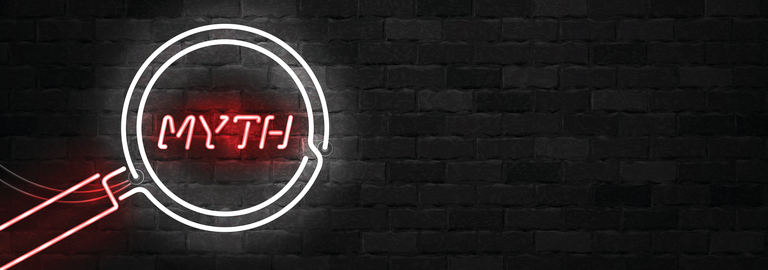
Technology available to accounts payable departments is getting more advanced and has enabled many to employ automation to minimise costs, boost revenues and leapfrog laggards.
Findings from Research Engine show that markets are investing heavily in automation. Digital transformation is forecast to exceed $650bn (just under £500m) by 2024 at a compound annual growth rate of 18%.
But there are still many UK companies who are falling behind. Despite HMRC’s best efforts with its Making Tax Digital (MTD) scheme, 25% of businesses still rely solely on paper-based records, and a further 20% are yet to implement accounting software.
‘Digitise or die’ is the modern mantra, but why are so many companies reluctant to adopt such technology? In this article, we dispel the myths surrounding automation and accounts payable software holding businesses back by looking at one example of accounts payable software, Yooz, as an example.
Myths about accounts payable software
Myth: It’s too expensive
There’s no denying that software for accounts payable is an initial investment, but businesses often report seeing returns quickly.
Manual processes take time, reduces the productivity of staff, and leaves more room for errors, while the next-gen solutions have made things simpler like pay-per-use, reduced IT costs and the variable nature of cloud bandwidth.
Myth: Implementation will disrupt business as usual
It’s always difficult to make changes within a core business function, especially when everyone in the team is accustomed to a specific process or technology.
But think of it as short term pain for long term gain. Plus, the latest accounts payable software will often bring with it a painless implementation process and plenty of information to help its users.
Myth: It takes too long to implement
The length of time it takes to implement new software is always a concern when assessing the value of doing so.
Smart workflows in a business’s approval process can cut approval process by three quarters of the current time, something Yooz can do. The mobile app allows invoices to be approved from anywhere, while the email generator makes it easier to share and collaborate both internally and with third parties. This results in better collaboration with suppliers, accountants and other internal and external collaborators.
Yooz will also automate 80% of a firm’s invoices, and its technology makes it easier to enter complementary data, reducing the need to worry about exceptions. Yooz is both easy to implement, and will save time in the long term to more than make up for any time spent implementing.
Resources & Whitepapers
Myth: It won’t connect with existing IT infrastructure
Many organisations are still relying on the old IT infrastructure. The team at Yooz has seen IT systems in all shapes and sizes, and have plenty of experience integrating old to new. It’s their job to modernise and automate old accounts payable departments.
Yooz’s software has native connectivity to more than 200 accounting packages and ERP systems which make integration seamless.
Myth: It will automate everything, even fraudulent invoices
Even corporate giants like Google and Facebook were victims of nearly $100m accounts payable fraud. However, as with many cyberthreats, these attacks targeted the human element, tricking staff into authorising invoices.
Yooz helps tackle this scenario by automating the bulk of supplier payments, cutting down the majority of processing, while teaching the software to flag any abnormalities to a human operator. This in turn brings efficiency and increases the productivity of the finance departments by detecting the fraud on invoices.
A change in mindset is necessary
The adoption of automation in an accounts payable department is about more than integrating new technologies. The whole organisation needs to get behind and appreciate the long-term benefits it will bring teams and the businesses.
Once adopted, the benefits will be plain to see. Adopting accounts payable software brings tangible benefits, such as reducing the time and cost of invoice processing, preventing fraud and the loss of documents, and streamlining overall workflows.
It can also improve employee productivity, enabling those working in accounts payable to achieve more with their time than they could previously, therefore allowing them to spend more time working on higher-value tasks.
What’s more, the technology is constantly improving and adapting, becoming more reliable, flexible and adaptable with each iteration. In a function where human error can occur often and processes are so strict they often leave no room for sudden change, these are all welcome traits.
Making the move towards automation is just part of a wider goal of changing mindset to make the business more agile, and therefore more competitive, in the market.
Case Study: Five Guys France
Five Guys France launched in 2016 with 10 restaurants. Its accounting department was processing an average of 500 invoices a month. At the time, the company was employing an external accounting firm, BDO, that was using Yooz’s AP automation solution integrated with CEGID’s ERP system – a French point of sale software company.
In 2017, Five Guys France chose to internalise its accounting functions. It opted for Sage Intacct 1000 ERP, and implemented the Yooz solution itself having recognised the benefits of BDO doing so previously – safety, security and improved productivity.
Frederic Garo, Five Guys France Finance Manager, spoke about the company’s successful transition, saying: “Our CPA was 100% operational in just one day. Our franchisees have so many things to do in their restaurants that they don’t have time to manage their invoices. Yooz makes their lives easier.”
The Yooz solution integrates with Sage Intacct 1000 ERP, and allowed Five Guys France to bring their invoice payment processing workflow in-house.
Leave a Reply